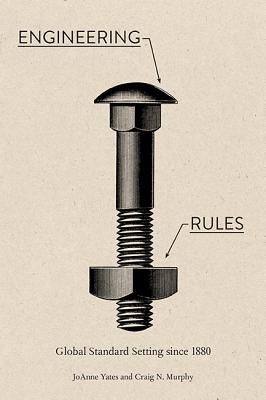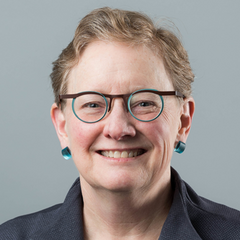

 Johns Hopkins University Press
Johns Hopkins University Press
Engineering Rules: Global Standard Setting Since 1880


Key Metrics
- Joanne Yates
- Johns Hopkins University Press
- Hardcover
- 9781421428895
- 9.1 X 6 X 1.3 inches
- 1.6 pounds
- Science > History
- English
 Secure Transaction
Secure TransactionBook Description
Private, voluntary standards shape almost everything we use, from screw threads to shipping containers to e-readers. They have been critical to every major change in the world economy for more than a century, including the rise of global manufacturing and the ubiquity of the internet. In Engineering Rules, JoAnne Yates and Craig N. Murphy trace the standard-setting system's evolution through time, revealing a process with an astonishingly pervasive, if rarely noticed, impact on all of our lives.
This type of standard setting was established in the 1880s, when engineers aimed to prove their status as professionals by creating useful standards that would be widely adopted by manufacturers while satisfying corporate customers. Yates and Murphy explain how these engineers' processes provided a timely way to set desirable standards that would have taken much longer to emerge from the market and that governments were rarely willing to set. By the 1920s, the standardizers began to think of themselves as critical to global prosperity and world peace. After World War II, standardizers transcended Cold War divisions to create standards that made the global economy possible. Finally, Yates and Murphy reveal how, since 1990, a new generation of standardizers has focused on supporting the internet and web while applying the same standard-setting process to regulate the potential social and environmental harms of the increasingly global economy.
Drawing on archival materials from three continents, Yates and Murphy describe the positive ideals that sparked the standardization movement, the ways its leaders tried to realize those ideals, and the challenges the movement faces today. Engineering Rules is a riveting global history of the people, processes, and organizations that created and maintain this nearly invisible infrastructure of today's economy, which is just as important as the state or the global market.
Author Bio
JoAnne Yates is the Sloan Distinguished Professor of Management, Emerita and Professor Post Tenure of Work and Organization Studies and Managerial Communication at the MIT Sloan School of Management. Yates developed MIT Sloan's Managerial Communication curriculum starting in 1980. From 2007-2012 she served as Deputy Dean for programs at MIT Sloan. Her research is both historical and contemporary.
Her most recent historical book, coauthored with her husband, a professor of political science at Wellesley College, is JoAnne Yates and Craig N. Murphy, Engineering Rules: Global Standard Setting Since 1880 (Johns Hopkins University Press, 2019), a study of the rise and important role of voluntary standard setting in the global economy. As part of the longer project that culminated in this book, they also wrote an initial monograph on one standard-setting organization: Craig N. Murphy and JoAnne Yates, The International Organization for Standardization (IS0): Global Governance through Voluntary Consensus (London: Routledge Press, 2009).
Her first, award-winning historical book is Control through Communication: The Rise of System in American Management (Johns Hopkins University Press, 1989), which traces the emergence of the communication and information system characteristic of US companies during most of the 20th century. Her second single-authored book, Structuring the Information Age: Life Insurance and Technology in the Twentieth Century (Johns Hopkins University Press, 2005), provides insight into the largely unexplored evolution of information processing in the commercial sector and the underrated influence of corporate users in shaping the history of modern technologies in the United States.
In her research on contemporary organizations she has collaborated with Professor Wanda Orlikowski (of MIT Sloan’s Information Technology group) and various students and researchers to study how groups and organizations use communication and information technologies, and how that use shapes their work. Specific studies looked at the use of technologies such as electronic mail, instant messaging, the BlackBerry, and corporate blogging.
She is currently also working with a team of faculty from the Work and Organization Studies Group on research aiming to improve academic performance of underrepresented minority students.
Yates holds a BA from Texas Christian University as well as an MA and a PhD from the University of North Carolina.
Source: MIT Sloan School of Management
Videos
No Videos
Community reviews
Write a ReviewNo Community reviews